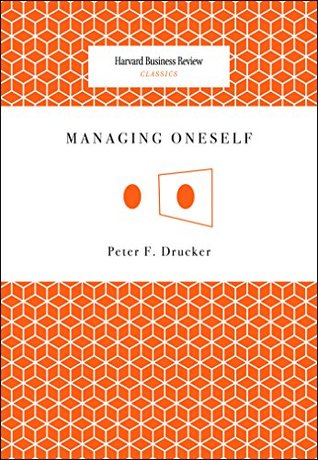More on this book
Community
Kindle Notes & Highlights
The only way to discover your strengths is through feedback analysis. Whenever you make a key decision or take a key action, write down what you expect will happen. Nine or 12 months later, compare the actual results with your expectations.
Several implications for action follow from feedback analysis. First and foremost, concentrate on your strengths. Put yourself where your strengths can produce results.
Third, discover where your intellectual arrogance is causing disabling ignorance and overcome
Comparing your expectations with your results also indicates what not to do.
It takes far more energy and work to improve from incompetence to mediocrity than it takes to improve from first-rate performance to excellence. And yet most people—especially most teachers and most organizations—concentrate on making incompetent performers into mediocre ones. Energy, resources, and time should go instead to making a competent person into a star performer.
The listener who tries to be a reader will, therefore, suffer the fate of Lyndon Johnson, whereas the reader who tries to be a listener will suffer the fate of Dwight Eisenhower. They will not perform or achieve.
Some people learn by taking copious notes. Beethoven, for example, left behind an enormous number of sketchbooks, yet he said he never actually looked at them when he composed. Asked why he kept them, he is reported to have replied, “If I don’t write it down immediately, I forget it right away. If I put it into a sketchbook, I never forget it and I never have to look it up again.” Some people learn by doing. Others learn by hearing themselves talk.
Am I a reader or a listener? and How do I learn? are the first questions to ask. But they are by no means the only ones. To manage yourself effectively, you also have to ask, Do I work well with people, or am I a loner? And if you do work well with people, you then must ask, In what relationship?
Do I perform well under stress, or do I need a highly structured and predictable environment?
Do not try to change yourself—you are unlikely to succeed. But work hard to improve the way you perform. And try not to take on work you cannot perform or will only perform poorly.
Organizations, like people, have values. To be effective in an organization, a person’s values must be compatible with the organization’s values. They do not need to be the same, but they must be close enough to coexist. Otherwise, the person will not only be frustrated but also will not produce results.
What are my strengths? How do I perform? and, What are my values? And then they can and should decide where they belong.
Knowing where one belongs can transform an ordinary person—hardworking and competent but otherwise mediocre—into an outstanding performer.
What should my contribution be? To answer it, they must address three distinct elements: What does the situation require? Given my strengths, my way of performing, and my values, how can I make the greatest contribution to what needs to be done? And finally, What results have to be achieved to make a difference?
Where and how can I achieve results that will make a difference within the next year and a half ?
The first secret of effectiveness is to understand the people you work with and depend on so that you can make use of their strengths, their ways of working, and their values.
The second part of relationship responsibility is taking responsibility for communication.
There are three ways to develop a second career. The first is actually to start one.
The second way to prepare for the second half of your life is to develop a parallel career.
Finally, there are the social entrepreneurs. These are usually people who have been very successful in their first careers. They love their work, but it no longer challenges them. In many cases they keep on doing what they have been doing all along but spend less and less of their time on it. They also start another activity, usually a nonprofit.


